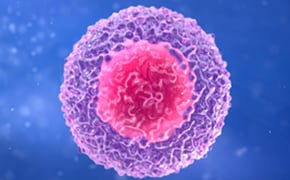Immunology Research

As the study of the immune system in both health and disease, immunology research covers a wide range of topics. While there are on-going efforts to understand intracellular immunity mechanisms and effector mechanisms of the immune system, a significant number of researchers are focused on the study and role of the immune system in disease. Researchers in these areas study diseases interrelated by cellular, molecular, and genetic regulatory mechanisms that dictate the associated immune response, such as cancer, infections, chronic inflammation, autoimmune diseases, allergies, and tissue transplantation.
Related Articles
- Investigate SARS-CoV-2 structural proteins (E, M, N, S) with antibodies, inhibitors, and enzyme reagents for functional studies.
- Bioactive small molecules for immune system signaling target identification/validation and antibiotics, antivirals, and antifungals offered.
- Nitric oxide (NO) as a signal transporter in neurons, endothelial cells and in the immune system.
- Adjuvant selection for vaccine formulation considers safety, effectiveness, and other characteristics for optimal application.
- See All (1)
Related Protocols
- Lipopolysaccharides (LPS) are characteristic components of the cell wall of Gram negative bacteria; they are not found in Gram positive bacteria.
- MTT assay protocol for measuring cell viability, proliferation and cytotoxicity. Instructions for MTT reagent preparation and examples of applications.
- The following procedure has been evaluated with Ficoll-Paque PLUS and is recommended for separation of normal blood samples for maximum reproducibility.
- See All (1)
Find More Articles and Protocols
Sign In To Continue
To continue reading please sign in or create an account.
Don't Have An Account?